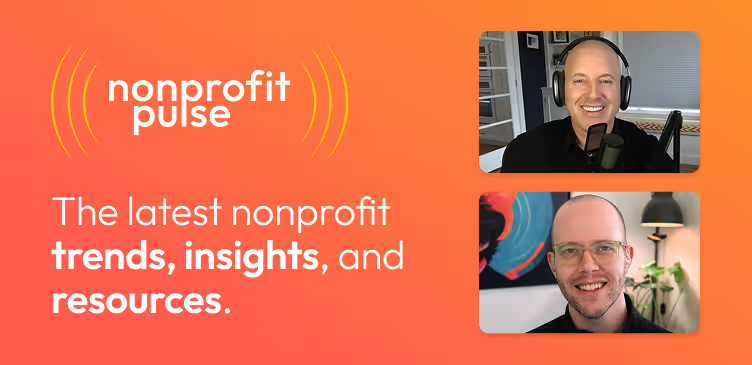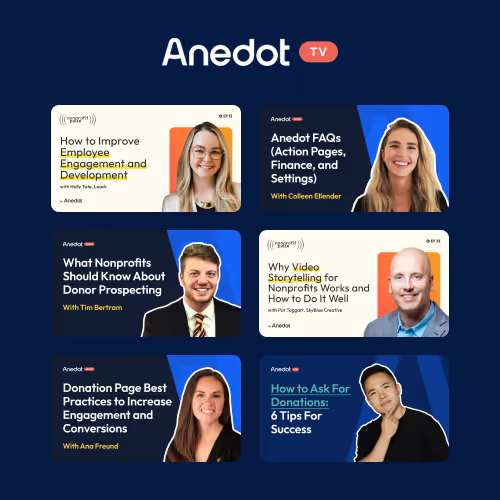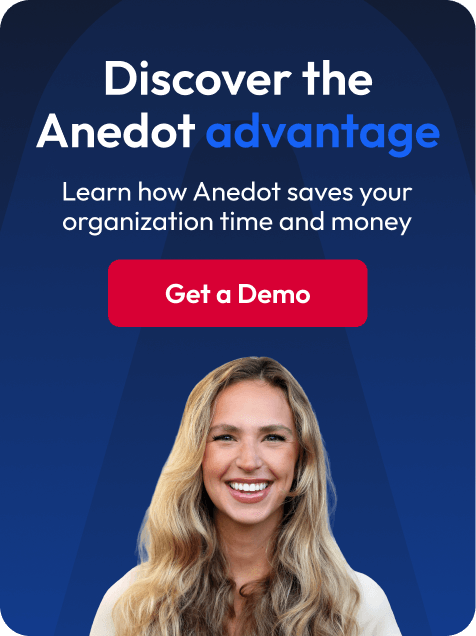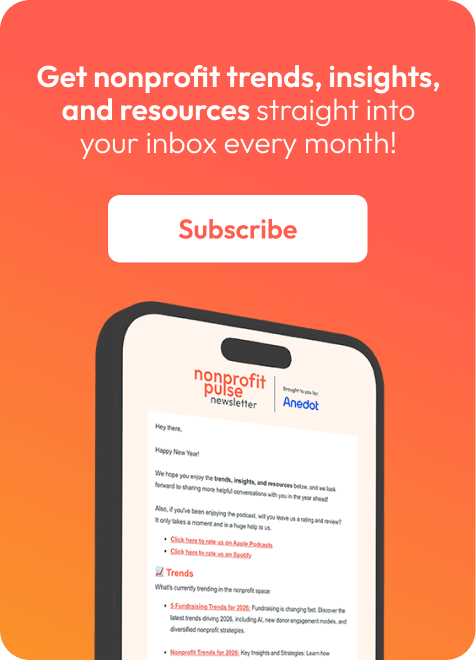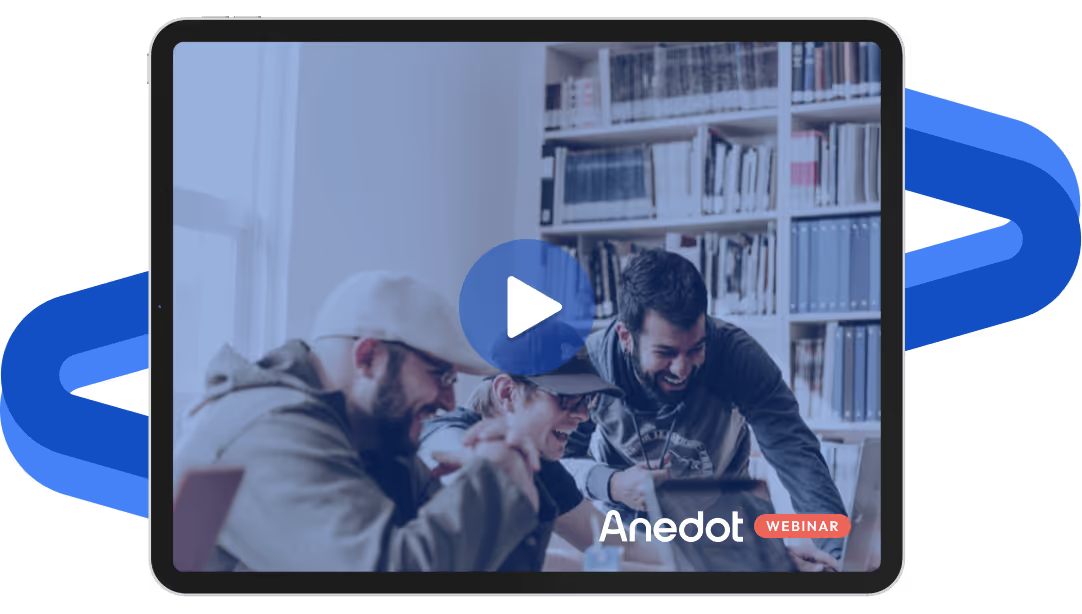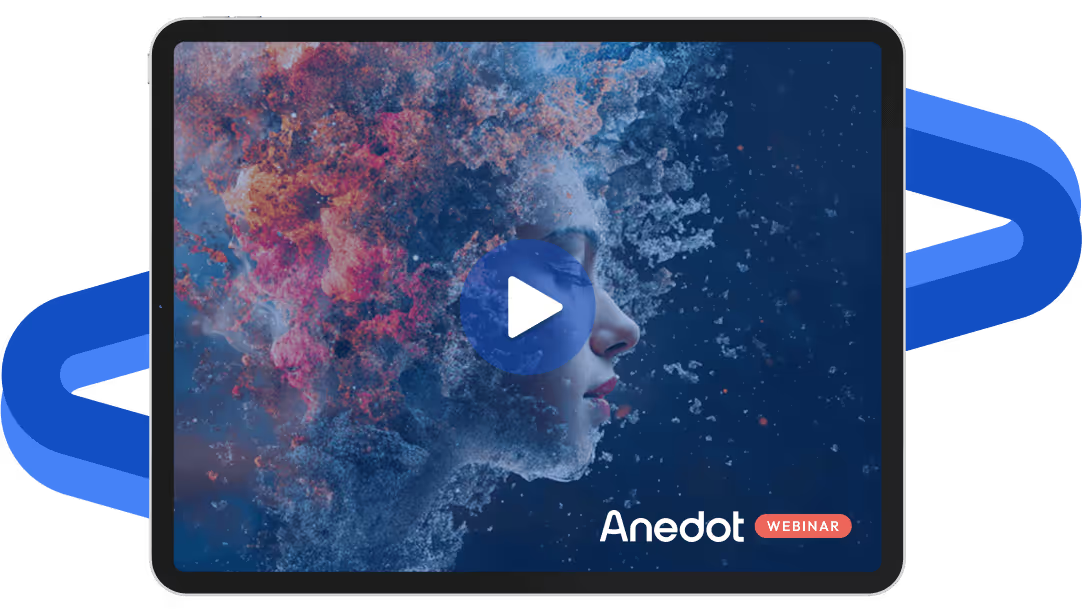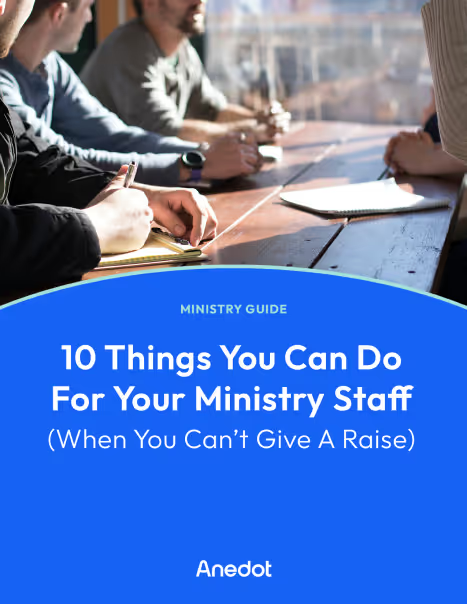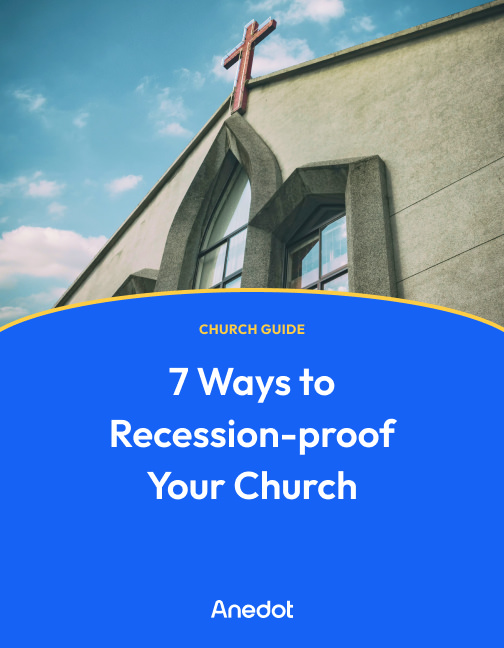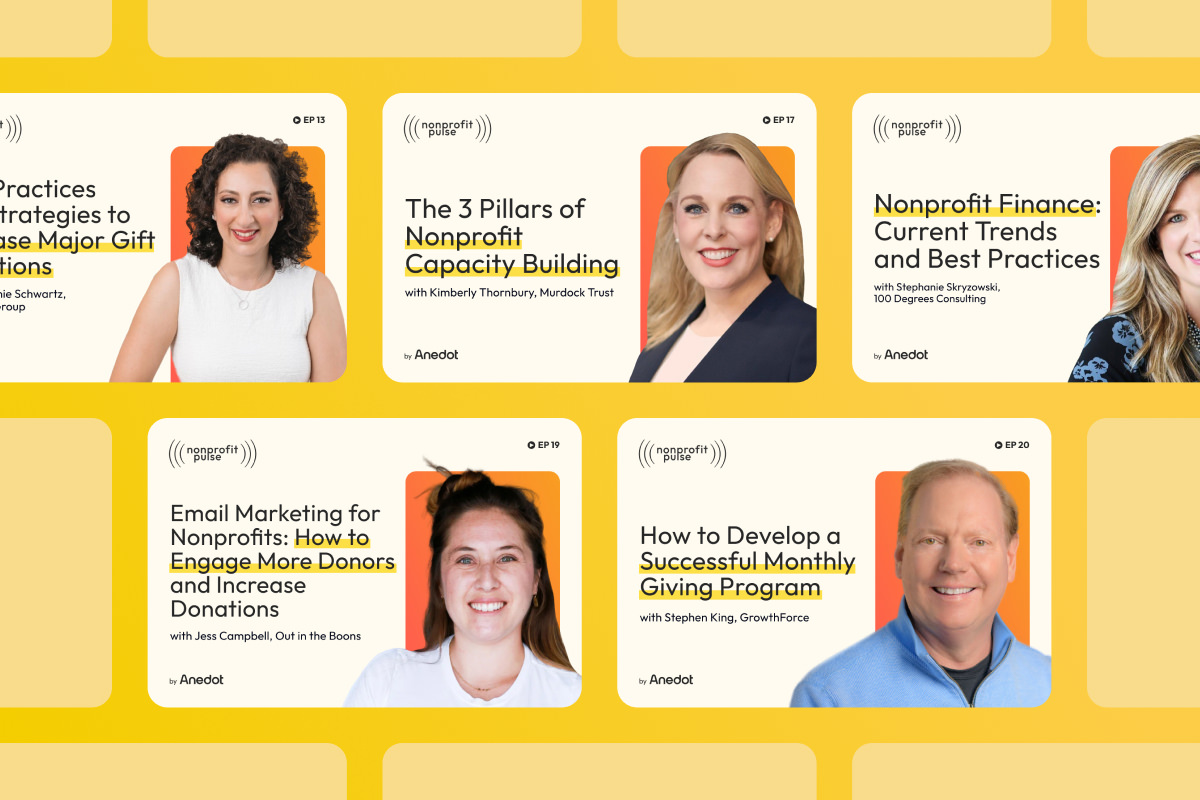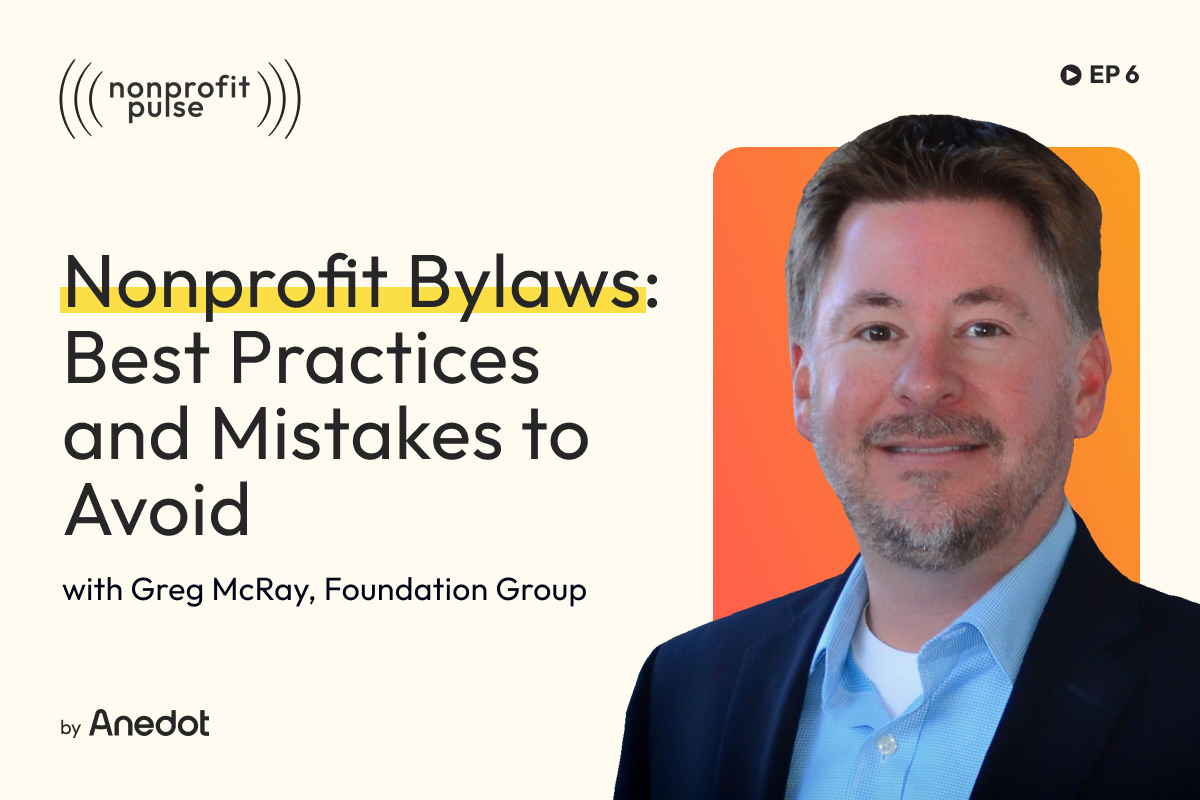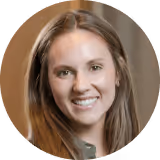Podcast episode transcript ↓
Josh:
Welcome to Big Ideas For Every Org. We help leaders discover powerful, big ideas that increase organizational impact.
I'm Josh, and today we're joined by Katie Appold.
Katie serves as Executive Director at Nonprofit Hub, the parent organization of Cause Camp, which collectively serves more than 50,000 nonprofits throughout North America.
Today, we're talking about increasing impact despite uncertainty.
Change is hard, it's even harder when conditions are uncertain, but oftentimes, greater impact is just around the bend if you're willing to continue down the path.
Today, we're going to unpack how one nonprofit took a risk, expanded their reach, and increased their impact.
Katie, thanks for joining us.
Katie:
Thanks for having me.
Thrilled to be here.
Josh:
Hey, so before we jump into the topic today, will you tell us a bit about yourself and your organization?
Katie:
Sure, absolutely.
So, I am a nonprofit pro through and through.
Before I got to Nonprofit Hub, I led some human service organizations, a foundation, and actually worked for a very large nonprofit publisher.
Today, I lead Nonprofit Hub, which is a nonprofit professional development institution, and we serve around 50,000 nonprofits all over North America.
And we also run Cause Camp, which is one of the top conferences for nonprofit pros in the US.
Exploring the solutions to uncertainty

Josh:
Awesome.
So before we talk about the solution, tell us, how did you begin to see the problem of uncertainty holding back organizational impact where you're at?
Katie:
I love the question, I love the whole premise for this episode, and as I thought about it, Cause Camp actually came to mind because that is one of the programs that we have really struggled with.
Do we protect it and keep it as it always has been?
Or do we take some risk and try to blow it up?
Try to make it bigger?
I don't want to say it was a problem as much as we saw an opportunity, with a lot of risk attached to it.
Josh:
Sure.
How did you discover the solution?
How did you discover, hey, maybe we should do this in a different way?
Katie:
Really by watching our peers, we keep tabs on all of the nonprofit conferences throughout the US, always looking for great speakers for one thing, but also different styles of delivering the program, different ways of constructing things.
One thing we noticed was that conferences that had really consistent success were ones that were rotating from major city to major city, and it was kind of eye opening to us.
We had consistently held Cause Camp in Nebraska for over 20 years.
We had explored moving it to other cities, but then COVID happened, so it became remote for two years, or virtual for two years I should say.
I think that was also an opportunity because it gave us a point to step back and look at it and really evaluate.
Rather than jumping from Nebraska into something new, we were able to jump from Nebraska to virtual, to trying a new city.
Josh:
Got it.
Today, we're talking about increasing impact despite uncertainty, and I think every organization is dealing with uncertainty in various ways.
Today, it may be uncertainty around potential recession, uncertainty around COVID, just quite a few things in the mix right now.
What was the process of decision making on this in your organization?
Katie:
Well, we definitely did our research and that's something I would recommend to any nonprofit if you're facing uncertainty or you're facing a decision that you can't be a hundred percent certain of, you should at least do as much homework as possible.
And that's looking at all of the benefits and potential risks, and also, like I said, looking at maybe what peer organizations are doing.
We did a lot of groundwork.
We looked at where nonprofits are located throughout the US, we did a heat map to see where the strongest cities are.
We did some polling of our own audience to test the appetite for traveling to a different location, and of course, we did a hard look at our budget and what we could afford to do.
Josh:
Leaning into that, can you speak more about the process of discovery y'all went through?
What does that research process look like?
Katie:
Well, the first step is definitely connecting with stakeholders.
For our organization, our audience was critical, like I mentioned, we had to poll them, talk to them, see if they had an appetite for going to a different destination.
But with any organization considering any new opportunity, I think you also have to make sure that you're getting your board on board.
Does your board of directors understand what you're investigating and are they supportive?
We also had to talk to sponsors of the conference because they had been used to one destination and one format.
Again, finding out if moving to a different location would meet their needs, if they found it exciting.
And I guess, we watched for flags.
If there wasn't a ton of enthusiasm, we probably wouldn't have continued to pursue it.
Also, talking to those individuals, the board, the sponsors, the audience, if there had been major hurdles, they would've helped us identify those.
A lot of times I see nonprofit teams, I see teams in the for-profit side do this too, but we make decisions in a vacuum, and forgive kind of crass way of saying this, but we get high off our own enthusiasm.
We oftentimes need to bring in outside opinions, outside eyes, to help us analyze what really is the next best move.
Take risks to overcome uncertainty
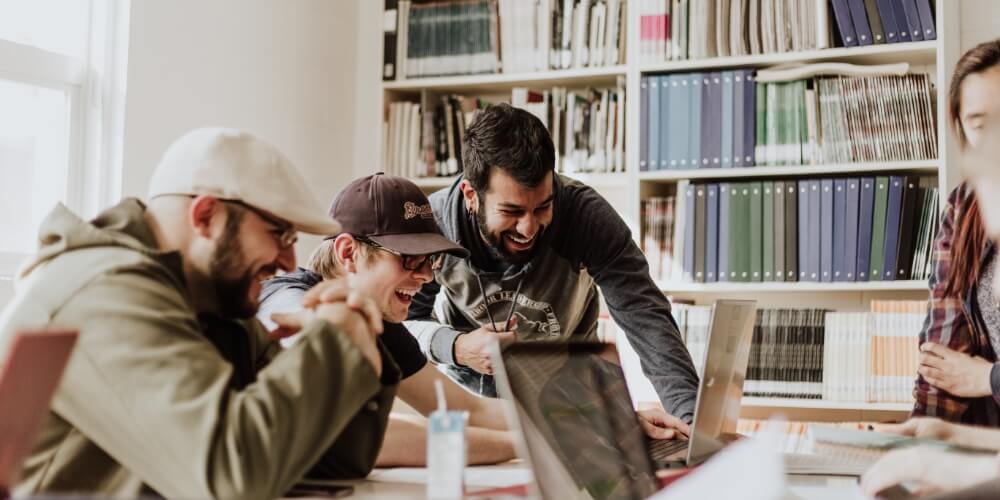
Josh:
Yeah, so what are the challenges that y'all had to face and overcome with this decision?
Katie:
I think the biggest challenge is that there is no certainty.
You can and should do research that helps you to make an informed decision, but you never take a big step without taking some risk.
I think that was probably the biggest hurdle.
We knew we had a strong chance of making this an even bigger event, an even more well known event, if we took it to other cities, but we were leaving the safety of something that we knew.
We knew what the costs would be.
We knew approximately how many people would show up, what kind of marketing would need to be done.
When you go to a completely different region in a completely different venue, all of that becomes somewhat more fluid and it's harder to peg things down.
Ultimately, we decided to take the chance and we held Cause Camp in Michigan in 2022, and it was a huge success, but it wasn't with any degree of certainty.
We weren't a hundred percent sure it was going to be this action packed, heavily attended conference.
Now, we're planning for 2023, we're going to be in Sandusky, Ohio.
And even though we know now that this model of moving the conference does work, our audience loves it, it works for our team, we're able to make the accommodations necessary to show up well wherever we go, but there's still risk.
There's still some uncertainty and each new market will always bring that.
Josh:
Yeah, so speak more to that.
Looking back now, what would you say are the positive effects and results from taking this risk?
Of taking your main conference from a single location for many years with great results, to now, this traveling format.
What are the positive results you've seen so far?
Katie:
One of the biggest positives, I guess I'll give you two.
So the obvious one is we are able to be more accessible to nonprofits throughout the nation.
For a lot of organizations, travel is not a line item on their budget, so they can't go to a destination conference unless that conference comes to them as a destination.
By traveling around, we're able to meet with more nonprofits and serve more nonprofits.
Another benefit that I didn't see coming, but I think has been incredibly significant, is we're able to see how different communities support and interact with the nonprofits in their area.
I'll use Ohio as an example, we did a site visit for Cause Camp 2023 just this week, and watching the chambers of commerce there, how eager they are to bring this event in, they were open with us sharing some of the challenges that the nonprofits in Ohio are facing.
And listening to that we're able to identify, okay, these are national level issues, this is something that's happening regionally that maybe Cause Camp can help with.
I guess, the biggest overall takeaway is it just helps us to reach more nonprofits, but to get to know them where they're at.
Expand your reach to increase your impact

Josh:
Yeah, that's great.
I'm thinking about, there's probably hundreds or thousands of nonprofits, and maybe even ministries, who are reaching a certain area, whether that's a city, or a state, or a region, who really are sitting on an opportunity to expand their impact, to reach more people, to go from a nonprofit focus on a city to a whole state, or from a state to a region.
What would you say to those who are on the fence or have concerns about expanding their footprint or reach in 2022, 2023?
Katie:
I think it's a risk worth exploring.
One of the silver linings of the pandemic, as tragic as it was, it very quickly and thoroughly equipped everyone to operate in a more remote fashion.
Expansion is no longer this scary idea of having to open a physical office, or have feet on the ground or boots on the ground in a specific area.
There's so much you can do virtually or remotely now.
It's risky, I think any nonprofit that thinks about expanding, whether it's absorbing another community as a service area, or maybe becoming statewide or national, I think the first thought most ED's have is, do we have capacity?
Can we serve all those people?
But the flip side of that is, when you grow your service area, you grow the amount of needs that you're serving, but you also grow your potential support.
Serving a small community is hard because typically your support comes from that small community, so if the need outgrows the support, you become lopsided.
When you become a larger regional organization, your opportunities to engage new donors, talk to larger foundations, and even find corporate sponsors, they expand exponentially.
Again, research is critical.
You have to do your homework, but, that is definitely a risk worth exploring for all nonprofits.
Closing thoughts

Josh:
Katie, this has been so helpful to hear, and I hope encouraging to the audience.
Where can folks learn more about you and your resources?
Katie:
Well, of course they can follow everything we're doing at nonprofithub.org, and also they can check me out on LinkedIn.
Josh:
Katie, thanks so much for coming on today.
Katie:
Thanks so much.
Josh:
Hey, thanks for listening.
If you enjoyed this episode, please share it with others or leave us a rating and review.
To read show notes and resources mentioned in this episode, visit anedot.com/bigideas.
Again, that's A-N-E-D-O-T.com/bigideas.
We'll see you next time.
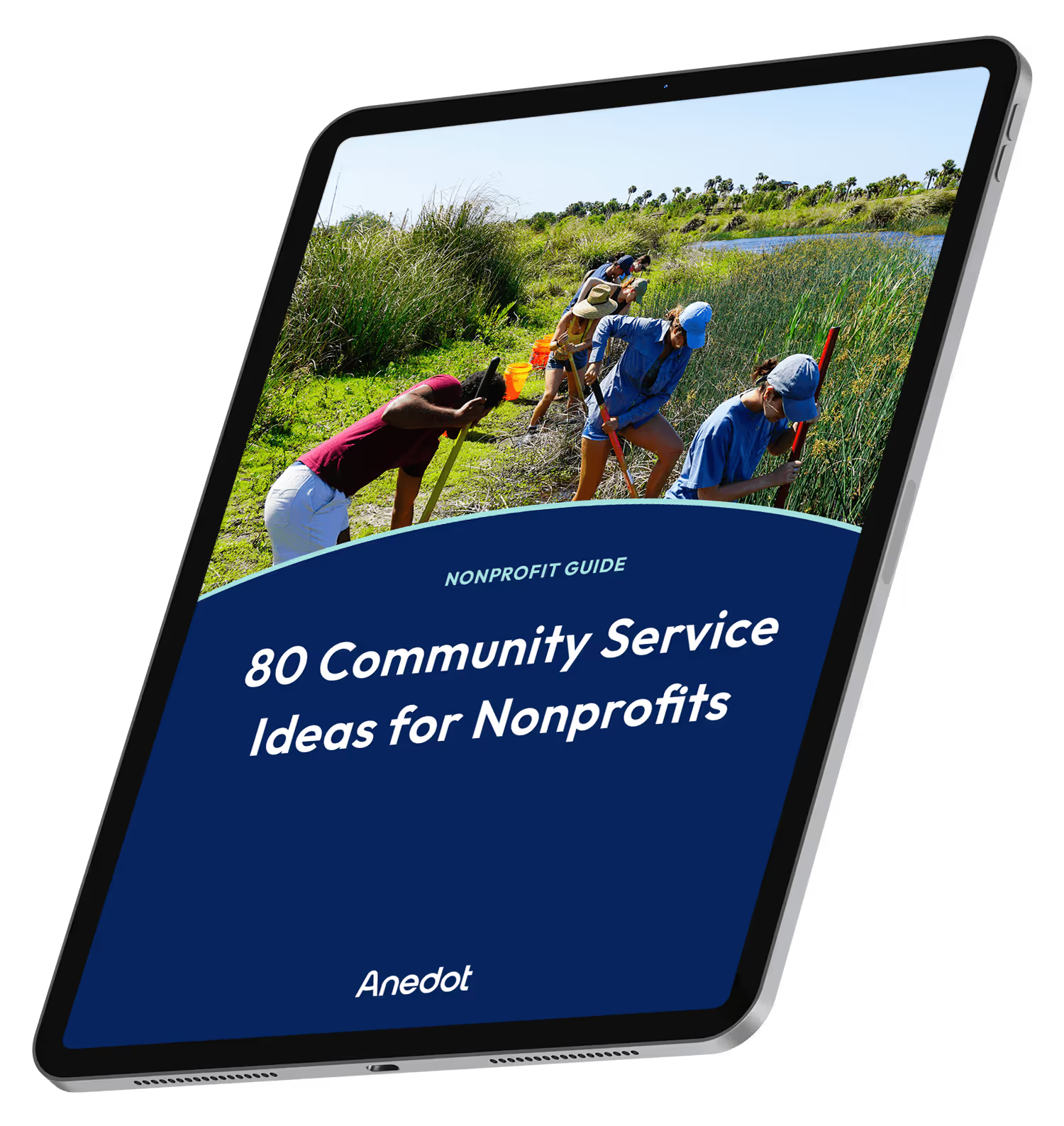
80 Community Service Ideas for Nonprofits

